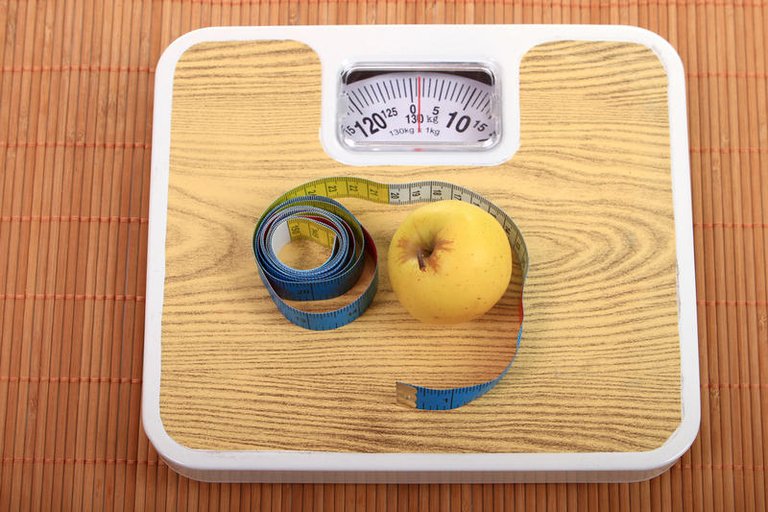
I hear this question all my life) I really eat everything and as much as I want, and I really dont spend hours in a gym after each meal and I always keep my weight.
It seems that my body has chosen the most comfortable weight and just "remembers" it, and whatever I do it never changes. Is it good? I think - yes. I avoid one of the greatest problems of modern life - overweigh and obesity. One problem less)
But what makes joy for me causes tragedy for others somehow because they all worry very much about my health) They ask and ask and ask if I am ok and whether I have eaten something today... It was fun, then I was irritating and now I just send them to hell ignore them and dont waste my time on explanations. I have my reply for it - it's my nature and genetics, that's it.

Now there's some more explanations I found some days ago.
Look.
Most people - both slim and complete, do not have enough knowledge on this issue. Knowledge can be protected from superficial judgments, mistakes, errors, disappointments, chasing the impossible, as well as from prejudice against those who are different from you.
Since obesity is a risk factor for many chronic diseases, funds are allocated for its study, research is conducted and scientific works are written. Every year we have more and more information about the causes of excess weight and "slow metabolism" - only one of them. And information about the naturally slender people is extremely small - scientists do not pay much attention to them.
Are these lucky beggars able to eat anything in any quantity and not get fat without even doing sports?
And what will happen if you put them in conditions where they will have to constantly overeat, that is, systematically consume more calories than they can spend? Will they remain slender?
How can I check this? How to fatten them?

This is described in the Air Force documentary series "Why Are Thin People Not Fat ?." which I recommend to everyone who is not indifferent to this topic.
The film begins with a story about an experiment in the Vermont Prison (USA), in 1967, whose goal was to study the body's response to a constant overeating. Young prisoners (age from 20 to 30 years old), healthy, slim by nature, without a family history of obesity and diabetes were taken. For three months, participants had to eat much more than usual, so that by the end of the experiment the weight of each of them increased by 25%. For example, if the prisoner weighed 60 kg. at the beginning of the experiment, then at the end it was supposed to weigh 75 kg. For this, each of them was picked up by an appropriate menu (from 5,000 to 10,000 kcal per day) and recommended avoiding physical activity. During the experiment, the scientists encountered an unexpected problem. Some participants did not gain the expected number of kilograms, despite the fact that they ate 10,000 calories per day and moved very little. Two were stuck at 21%, one participant increased weight only 18%.
Scientists concluded that for some obesity is almost impossible - their body somehow resisted the accumulation of fat.
Scientists explained that under such conditions, some people quietly start to do "extra" movements: to shrug their shoulders, swing their feet, drum their fingers on the surface of the table - so they spend part of the calories. This property of the body to protect itself from excess kilograms is predetermined genetically. And those who do not have such genes, usually stay in a motionless, half-sleep state after every plentiful meal.
The most intriguing was the following result: one student's weight increased by 8%, but outwardly the young man did not change - no fat folds on your sides and abdomen. At the same time, his basic metabolism increased by 30%. Measurements showed that the percentage of fat in his body increased only by 2%. And what about the rest?

It seems incredible, but from overeating he has increased muscle mass. This is also a genetic factor. Some people from cakes and chocolates fat, and others from the same become muscular, without even doing sports. But no one promised that life would be just.
Another interesting result. Two participants physically could not eat the prescribed number of calories: food literally climbed back. This is also a genetic factor. The body is protected from extra pounds with the help of nerve signals - they block attempts to overfill the stomach. (Personally, I know of people who can not physically put in an extra piece.) No wonder they do not understand how others manage to gain weight.)
Both experiments were time-limited. We can assume that if slender people were fed not a month or three, but a year or even a few years, the surplus food would be able to break the natural defense of the body and they could eventually grow fat.

So, naturally slender people intuitively avoid excess food, and if they still overeat, they start moving more. In some cases, muscle mass increases, which means that metabolism increases. And the rest have to defend themselves from excess weight yourself.
So it's really genetics and nature, and I am not a witch like others think))
Good post. The idea of a metabolic setpoint (you can google that term) has been around for a while. I discovered it when researching diet sodas and their effects on the body. There is some suspicion that diet sodas, while not directly adding calories, impact the metabolic setpoint and make it harder for people to lose weight. That's in addition to just tricking the body into thinking it's about to receive sugar.
very interesting! thanks for info
soda is very useful for many purposes but i know nothing about drinking it
Research has shown that the diet-induced thermogenesis is decreased when sodas are consumed with meals. Or in other words the metabolic efficiency goes down. I wrote some posts about it if you're interested.
thanks for share health tips.....may be i reasteam you dear
thanks for attention)
This content is almost as amazing are your body (: I learn a lot of health tips and knowledgeable information that I will incorporate into My daily life . Thank you for this content
haha thanks a lot))
Well, actually there's not much enigma why.
At least experiments on rats have proved that certain intestinal bacteria are responsible for that.
и что они делают,эти бактерии?
такую версию я не слышала еще) намного проще всем думать, что такие люди просто наркоманы, и ЧСВ поднял, и любопытство успокоил))
Ты в курсе, что из, скажем, 60 кг нашего тела - примерно 2-3 килограмма - это бактерии ?)
При этом, если посчитать их количество, то их будет даже больше, чем количество клеток тела /просто клетки тела обычно намного крупнее /
По сути это такой симбиоз, переваривать пищу без помощи сторонних бактерий, живущих в пищеварительном тракте, мы просто не можем.
Но их роль до последних лет недооценивалась, поскольку не было нормальных способов исследования.
Сейчас это направление мощно продвинули, по крайней мере толстой крысе уже можно дать штамм правильных бактерий, которые позамствовали у худой крысы, после того, как эти бактерии приживутся у нее в кишечнике - толстая крыса похудеет, хотя и будет продолжать жрать как и прежде )
Обычно gap между исследованиями на крысах и реальными препаратами для людей составляет 5-10 лет, так что еще немного подождать толстякам придется)
спасибо за ликбез)
о том, что бактерии играют колоссальную роль - я в курсе, а что вопрос фигуры именно в них, я не знала, но звучит логично) Теория из фильма о том, что делают больше движений, конечно, так себе..) я могу лежать, аки бревно, но все равно не растолстею, поэтому бактерии, наверное, ближе к истине..